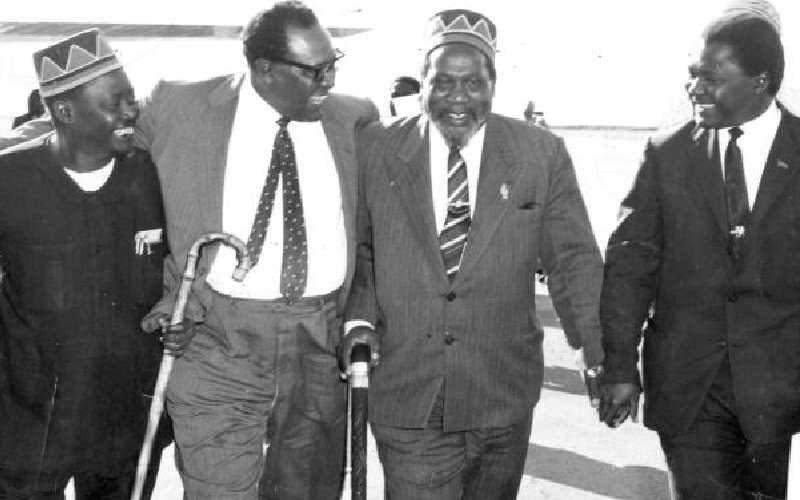×
The Standard e-Paper
Home To Bold Columnists

Jaramogi Oginga, Joseph Murumbi, Jomo Kenyatta and Tom Mboya at JKIA in OCT 1965. [File, Standard]
For nine years leading up to the Lancaster House Conference where Kenya's independence was negotiated, Joseph Murumbi lived in exile in Britain. While in detention, Jomo Kenyatta had sent Murumbi on a world tour to present Kenya's grievances to foreign powers.